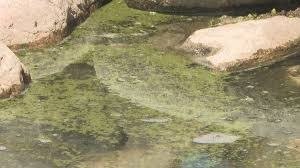Lethbridge: After facing a prolonged blue-green algae advisory at Henderson Lake last year, the City of Lethbridge has implemented a robust, proactive strategy this summer to combat the blooms and their potential health risks. This year’s efforts, including regular algaecide treatments and enhanced monitoring, appear to be paying off with significantly lower levels of algae compared to the previous year.
Blue-green algae, or cyanobacteria, can produce toxins harmful to both humans and animals. Contact or ingestion can lead to skin irritation, rash, sore throat, and gastrointestinal issues, with symptoms appearing within hours and typically resolving within a day or two. Exposure can even be fatal to pets.
‘Algae bloom levels and cyanobacteria levels are lower than typical, compared to last year,’ said Jackie Cardinal, Parks Natural Resource Coordinator at the City of Lethbridge. Global News reports this positive change is due to favorable weather and a dedicated algaecide program started in early June.
The City’s proactive approach includes monthly treatments of Henderson Lake with beneficial bacteria. These treatments reduce the nutrients that promote algae growth. The City is also researching other preventative measures. A partnership with Lethbridge Polytechnic involves students like Jin Kim and specialists like Tyler Branson. They monitor the lake and analyze algae concentrations, providing key data for the City’s management plan.
Branson notes that blue-green algae thrive in warm, sunny conditions, making the sun their ‘enemy’. However, this year’s weather patterns, including smoke reducing UV light and increased rainfall diluting nutrient levels, have helped improve conditions.
Although encouraged by the initial success, Global News cautions that algae blooms can be unpredictable and appear quickly. Therefore, the City advises residents and visitors to take these precautions:
.-Avoid contact with water that shows signs of blue-green algae.
-Wash thoroughly with tap water if contact occurs.
-Prevent pets and children from swimming or wading in the lake.
-Do not feed pets whole fish or trimmings from the lake.
-Limit human consumption of whole fish and trimmings from the lake, as fish livers can accumulate toxins.
-Never drink or cook with untreated water from the lake.




